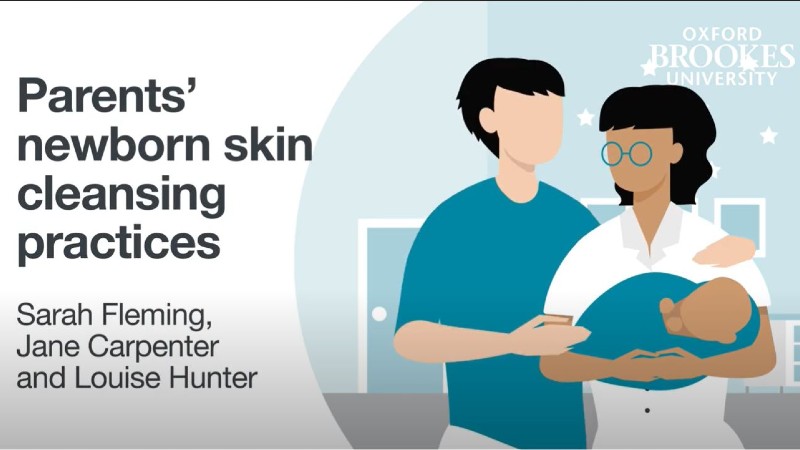Childhood eczema: experts investigate effects of cleaning habits on babies’ skin

Researchers at Oxford Brookes University have undertaken research to explore parents’ skin cleansing habits for their newborns.
Across the globe, between 5% and 30% of children have eczema, which may be attributable to how their skin is cleansed, particularly when they are newborn.
Senior Lecturer in Midwifery at Oxford Brookes, Sarah Fleming, joined by Dr Jane Carpenter and Dr Louise Hunter, both from the Oxford School of Nursing and Midwifery, conducted a study with nearly 1,000 sets of parents taking part in a detailed survey.
Cleansing skin after birth
The results revealed that 60% of parents cleansed their newborn baby’s skin for the very first time only 48 hours after the birth, with the study showing that Scottish parents were more likely to cleanse before 48 hours as opposed to their counterparts in Wales and England.
Additionally, 79% of parents cleansed their baby’s nappy area each time the nappy was changed, with parents from Scotland more likely to clean their child more frequently than parents in Wales and England.
Almost 60% of the parents used only water for cleansing their baby.
Sarah commented: “There has been little research into this matter in the past, and there are no up to date guidelines for parents on how frequently to cleanse and wash their newborn’s skin.
“Despite our findings through this work, more research is needed on the safest and most effective methods of cleansing newborn skin. At the moment we know so little about the most effective ways to cleanse skin, and understanding this alongside safety would help to provide parents with reassurance, and help them potentially reduce the chances of their child developing eczema.
“We are also planning to use the data we collected to explore how parents make their decisions on skin cleansing - who or what is influencing the decisions they make. This will help us to know how best to disseminate best practice advice around skin cleansing in future.”
